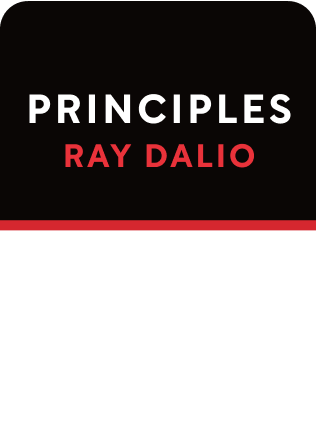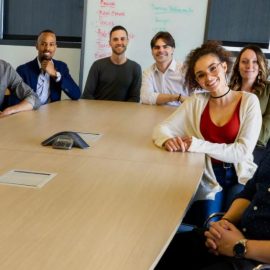

This article is an excerpt from the Shortform summary of "Principles: Life and Work" by Ray Dalio. Shortform has the world's best summaries of books you should be reading.
Like this article? Sign up for a free trial here .
How can you acquire best leadership and people management skills? What kind of management skills are the most important?
Leadership and people management skills are important no matter your job. Ray Dalio argues that the best leadership and people management skills come from valuing people and cultivating relationships.
Keep reading to find out more about leadership and people management skills.
Leadership and People Management
Dalio believes the WHO is more important than the WHAT. Deciding what is to be worked on is less important than deciding who is responsible for deciding what to work on. Deciding what a job’s responsibilities are is less important than deciding who would be best at serving them. This is where leadership and people management comes in.
The people are even more important than the culture, because the people shape the culture. Good people management recognizes this.
In several useful tactical chapters, Ray Dalio lays out his principles for people management. The major themes are:
- People have different values, abilities, and skills. Values and abilities are very hard to change, so don’t hire people lacking either values or abilities, and don’t rehabilitate people who are discovered to lack them.
- Seek the truth on people’s mistakes and shortcomings. Use good metrics to measure this, and monitor them frequently.
- Impress to workers that accuracy of feedback and kindness are the same thing. A caring gift you can give someone is the self-awareness to be successful.
- Make the hard decision to fire people in pursuit of the organization’s goals.
Cultivate Meaningful Relationships
Leadership and people management requires cultivating good relationships. Treating people like partners or extended family will make relationships more special than quid pro quo employment agreements. People struggle well together on a common mission, and they help each other evolve.
Expect your team to think like owners, and to behave accordingly.
- This helps people uphold their responsibilities, such as making sure things are taken care of when they’re on vacation, and spending company money like it’s their own.
Great relationships are built on common values and interests, having similar approaches to pursuing them, being reasonable and considerate with each other, and holding each other to high standards.
- Dalio considers Bridgewater “a family business in which family members have to perform excellently or be cut.”
- It’s important to have shared values and mission. People who aren’t aligned on the mission will work for different, conflicting goals, such as whatever makes more money for themselves at the expense of values.
People who buy into the community provide it with a long-term skeletal strength. The stronger the community is, the more it protects against bad actors. Good people management means seeing these strengths.
People in a community should be more considerate to others than what they demand for themselves. For example, if you are offended by how someone behaves, it is inconsiderate to ask them to stop exercising their rights for your sake.
Don’t be naive about how people behave. Most people will pretend to operate in your interest while operating in their own. Treasure honorable people who will treat you well even when you’re not looking.
Other tactics to build relationships:
- Fund ways for people to build relationships with each other. Pay for half of activities people want to do together, and pay for food and drink at hosted dinners.
- Accept that some people will not buy into the culture. They can still contribute a lot and be considerate.
Compensation
Despite all the positives of culture, people need to get paid for their work, so how should you pay them? This is another part of leadership and people management. Dalio gives some advice:
- Strive to be on the far side of fair. Each party should aim to say “you deserve more” to each other.
- Make sure people’s incentives align with their responsibilities, so they experience the consequences of the outcomes.
- People doing above-normal work should be paid accordingly; likewise for people doing below-average work.
- Being generous does not necessitate total fairness or entitlement. In general, people should be happy with what they get, and not point to what other people get as justification for getting the same thing.
- For example, many people commuted from New York City to Bridgewater’s Connecticut headquarters, so Bridgewater funded a shuttle for people who live in New York City. One employee suggested that it’d be fair to compensate drivers for the hundreds of dollars they spend on gas, since bus riders were getting free transit. Dalio felt no obligation to be equal in generosity.
Using Algorithms for Management
Good people management skills may mean using tools and technolgoy to manage people. Just as Bridgewater used computers to automate investment decisions, Dalio wanted to automate people management using algorithms. To him, there was nothing special about management that prevented it from being codified into rules. Just as with investments, automating management would come with advantages—thinking through good rules would strengthen the logic and reasoning; decisions would be consistent and unemotional; and people could continuously improve the machines with their creativity.

———End of Preview———
Like what you just read? Read the rest of the world's best summary of Ray Dalio's "Principles: Life and Work" at Shortform .
Here's what you'll find in our full Principles: Life and Work summary :
- How Ray Dalio lost it all on bad bets, then rebounded to build the world's largest hedge fund
- The 5-step process to getting anything you want out of life
- Why getting the best results means being relentlessly honest with everyone you work with






